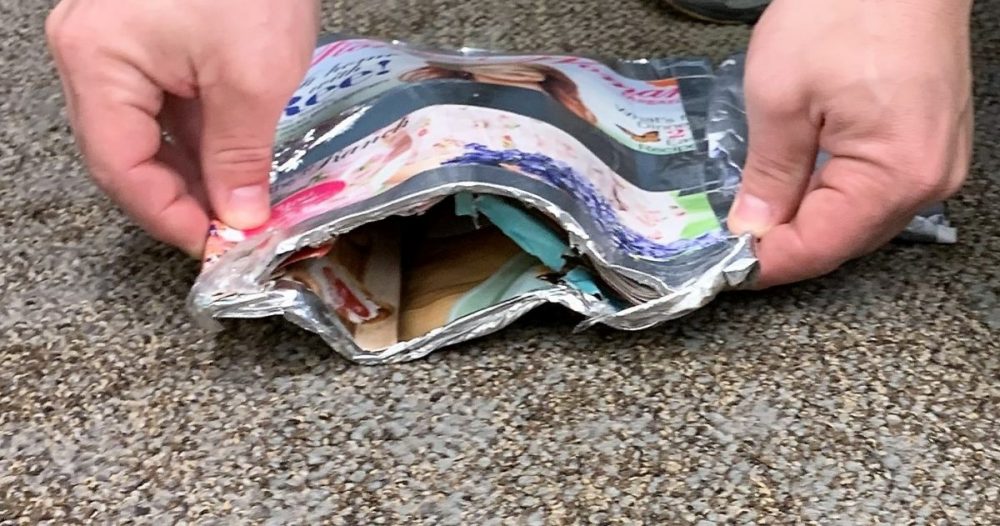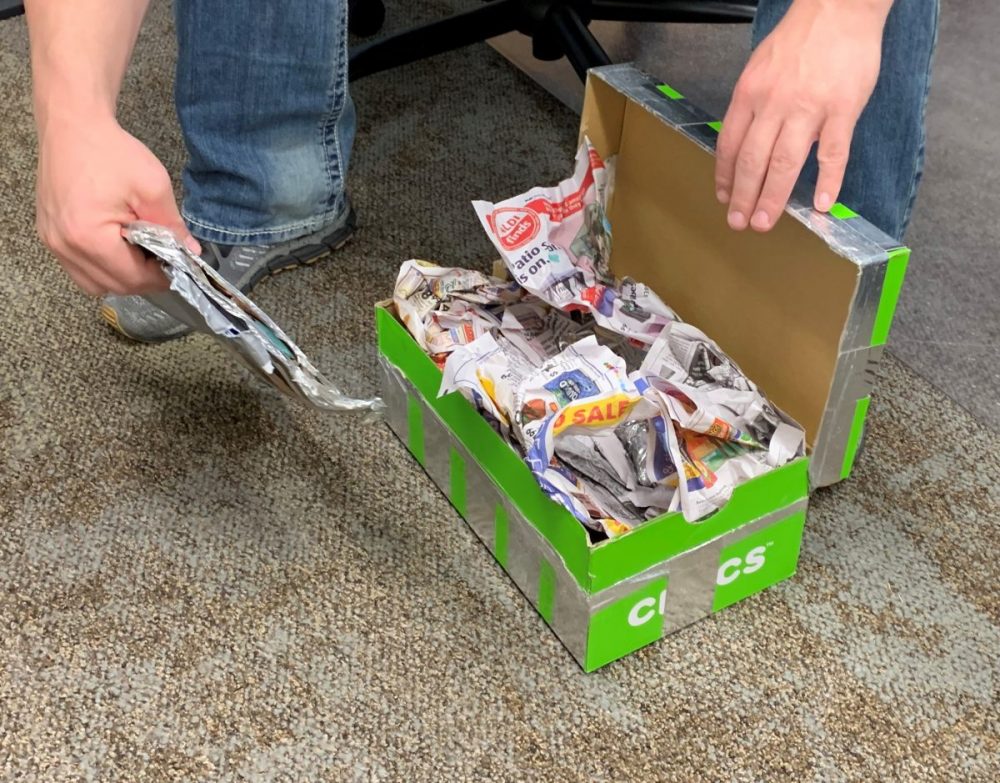Police Recover $26,400 Of More Than $60,000 Taken As A Result of Phone Scams
Sulphur Springs Police Department investigators warn residents to beware of callers threatening warrants or jail time if money or gift cards aren’t mailed or shipped immediately. Also, don’t send money if notified of a supposed prize award, such as a vehicle or large amount of money. Police emphasize these are scams, designed primarily to take advantage of elderly and other unsuspecting individuals.

While the concept is not new, the latest round of phone scammers are more manipulative, cunning and aggressive in their threats and methods. This week, scammers convinced one person to of the need to send approximately $60,000 to stay out of jail and conned another into sending $6,400 to claim a vehicle prize. However, thanks to savvy parcel carriers, police were able to get return the full $6,400 to one and $20,000 of the $60,000 for the other.
One of the scam victims remained on the phone all day with the cons, who pretended to be federal officers. When the elderly person attempted to hang up, the caller reportedly became verbally aggressive, threatening to arrest, even claiming the person’s door would be knocked down if the person did not send payment as ordered immediately in the manner, location and amounts as instructed. The victim reportedly stayed on the phone when the caller went to the bank to procure the money. When the bank employing cautioned about a potential scam, the victim became defense to the bank employee. Funds were then delivered to more than one shipping location to be sent to more than one address, event going so far as to order the person to a second location in a city other than the hometown.
One person was told to load the requested funding in specific amounts onto debit cards. One had the funding wrapped and placed between the pages of a magazine, which had duct tape around the edges, then put into a shoe box that also had duct tape on it. The individual then took it for overnight delivery, claiming the parcel contained important papers that had to get to the noted location within 24-hours or less — which also costs quite a bit in shipping and handling fees as well.
Police reported the parcels appeared suspicious, with signs of potential criminal activity involved. Parcel handlers, whether employees of the US Postal Service or shipping companies, are allowed to open suspicious packages without a warrant and will contact police if contraband is located. When it became apparent what was going on in the aforementioned situation, police were contacted. Police talked to one of the fraudulent callers over the phone; the individual claiming to work for law enforcement when confronted hung up on the police officers.

Sulphur Springs Police Chief Jason Ricketson and Special Crimes Unit Sgt. Joe Scott said these type of scams are becoming more prevalent, with callers becoming more aggressive bullies. Police ask community members to be alert and help protect elderly, the primary targets of these types of scams.
The use of apps which generate fake numbers and use other number masking devices makes tracing the call to the caller, who may not even be in the USA, virtually impossible too. Often, if called back, the number rings as “out of service,” only able to make calls but not receive, or was generated to show someone else’s number.
Scott noted that parcels can be intercepted while in transit, but often are sent to fraudulent address or addresses that do not belong to the caller. The cons often have someone else watch for the package or packages to arrive, then snatch them before anyone knows they were there. The funds then disappear with the person who collects the package.
Typically, these actions occurred quickly, with the victim out large sums, and once the payment has been collected at its destination and is collected, becomes almost impossible to track to the original caller, the SCU investigator noted.
Occasionally, law enforcement get lucky in that they have a full 24-hours to contact officials in the area where the money, gift card or preloaded debit card is being shipped. If the agency has staff available to assist, the agency officials wait for the package to arrive, then detain the person who collects it. That, however, may still not be the person who originated the scheme, however.
The telephone scam victims may be warned not to talk to their family or others about the situation, and if they are questioned by family, friends, business people or law enforcement are instructed exactly what to say in an effort to deflect attention from the scam in progress, Scott noted.
That’s why police urge people who have elderly relatives to check in on them regularly and talk to them about the types of telephone money scams so that they will be alert for them instead of victims. If a person who normally calls daily isn’t heard from in three days, police advise the relative to check on them to find out what’s going on.
If someone calls from a number that’s not known, especially one from a different area code, police recommend not answering the phone. They will leave a message with their name, information and contact number if they truly want to talk to you.

Know that law enforcement, from police and sheriff’s deputies to DEA agents, and government officials will not call asking for money. If a warrant is to be issued, the person will be contacted by mail, and then typically only for citations. If law enforcement plans to serve a warrant, they will do so in person, not by phone and won’t make threats of jail in lieu of payment. If an officer is calling about a warrant, the caller will likely encourage the person to turn themselves in to officials or to report to the law enforcement agency to take care of the matter.
Funds would not be requested in debit or gift cards and payment wouldn’t be due in several smaller increments to be mailed to multiple locations. Official mail from government agencies regarding issue typically will also be sent by certified mail, just as payment or documents should be mailed in appropriate parcel packaging.
If notified of a prize, that too likely will be done by mail, not over the phone. If a fee is required, it’s not free. If someone wants to send a prize, it is typically done by legitimate sources without payment. It’s only free if there’s no free. Do not send money to claim a prize. This is typically an attempt to obtain funding, and sometimes even personal information, not only costing the person dollars but also resulting in identity theft.
Do not give out personal information over the phone to someone who contacts you unsolicited, no matter what they promise or who they claim to be. Local and federal officials will not call asking for personal information over the phone: don’t give out names, addresses, ID or account numbers, officers note.
Officers remind people to keep in mind two things when dealing with unsolicited offers or requests: if it seems to good to be true, it usually is, and it’s not free if you have to pay something.
Police urge those who do have elderly relatives to keep an eye out for potential scams attempted at the older adult’s expense. Those who can are urged to set precautions, and if possible see if they will grant access to financial accounts online once a month or weekly, then monitor vigilantly for sudden changes in spending or sudden frequent withdrawals of large sums.
Anytime a resident feels like they or their family member is being scammed, the individual is urged to contact police to let them check it out. Legitimate businesses and agencies will provide information that can be verified. Those who aren’t sure how to do that may contact police or their local law enforcement office to have them do the checking for you.

KSSTRadio.com publishes Sulphur Springs Police Department reports and news. The Police Department is located at 125 Davis St., Sulphur Springs, Texas. Non-emergency calls can be made to (903) 885-7602.
If you have an emergency dial 9-1-1.
The Sulphur Springs Police Department continues to serve its citizens with pride in its overall mission and will strive to provide the best possible police force in the 21st century.
If you have an emergency, dial 9-1-1
The Hopkins County Sheriff’s Office is located at 298 Rosemont Sulphur Springs, TX 75482. You can reach them for non-emergency matters at (903) 438-4040.





